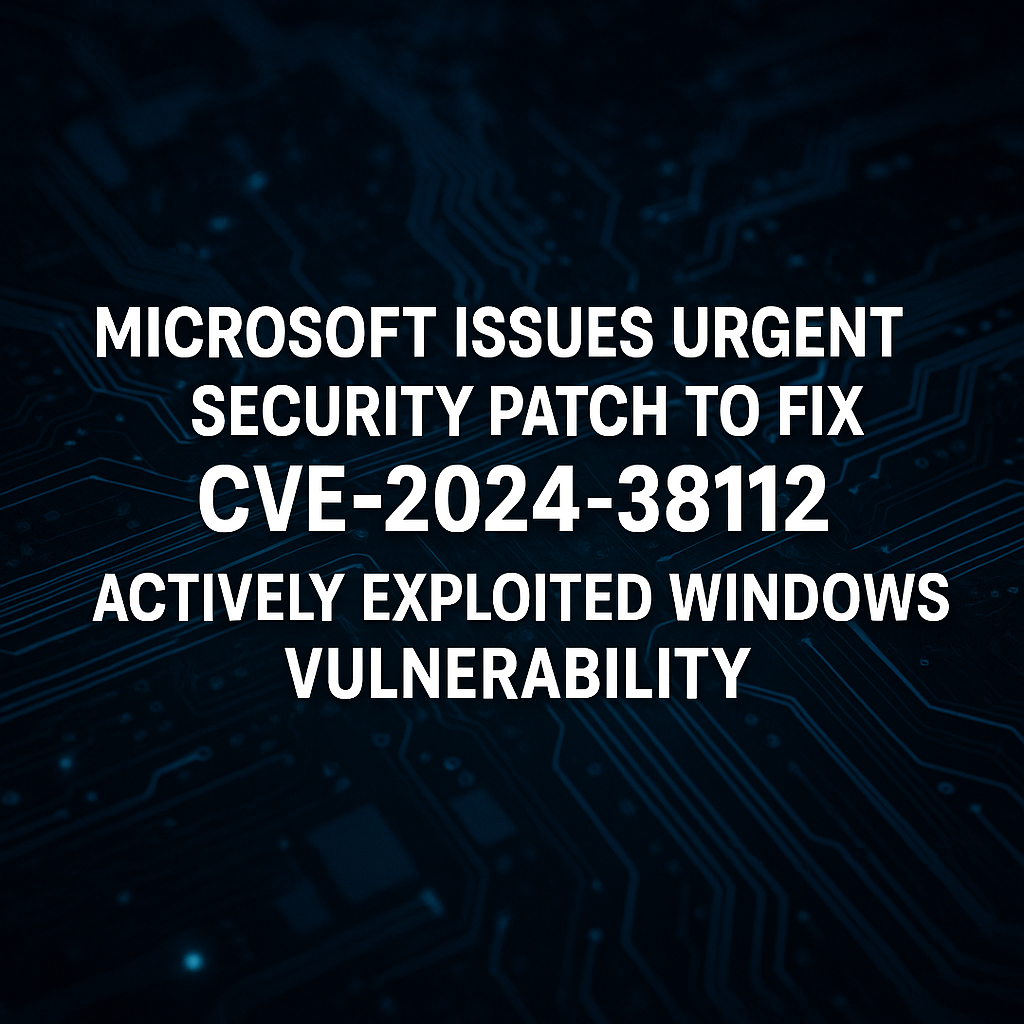Date Published: July 21, 2025
📌 What Is CVE-2024-38112 and Why It Matters?
This high-risk flaw affects how Windows handles Internet Shortcut (.URL) files, enabling attackers to disguise malicious links as legitimate PDF documents. Once a user clicks on the deceptive file, malware can be launched instantly, without any warning—putting personal data and system integrity at serious risk.
🧨 Real-World Exploitation: Hackers Masquerading Malware as PDFs
Security experts from Check Point Research uncovered the active exploitation of this flaw during a cyber campaign led by the DarkMe hacking group, believed to be associated with North Korea’s Lazarus Group.
The attack method involved sending victims ZIP archives containing .URL files, cleverly disguised with PDF icons. When users clicked the supposed PDF:
- The .URL file executed a hidden HTML Application (HTA).
- This allowed the malware to bypass security warnings and run undetected.
- Once active, the malware could steal sensitive data, monitor activity, or give attackers full remote access to the device.
This strategy exploited the way Windows Shell processes shortcut files—enabling silent malware execution without the user realizing the threat.
🛡 Microsoft’s Response: Patch Deployed in July 2025 Update
In its July 2025 Patch Tuesday, Microsoft released a fix to block this critical exploit. The update includes:
- Stricter handling of .URL files to prevent deceptive icons and behaviors.
- Restrictions on HTA file execution paths, making it harder for attackers to trigger hidden scripts.
The company has strongly advised all Windows users—individuals and businesses alike—to install the latest updates immediately to stay protected against this ongoing cyber threat.
⚠ Why This Patch Is Crucial
This vulnerability is particularly dangerous because it targets user trust by imitating everyday file types like PDFs. With active campaigns already in motion, leaving your system unpatched could open the door to data breaches, identity theft, or ransomware attacks.✅ What You Should Do Now
- 🔄 Update Windows immediately via Windows Update.
- ❌ Avoid opening ZIP files from unknown sources.
- 📁 Disable HTA execution, if not needed in your environment.
- 🧰 Use a trusted antivirus or endpoint security tool.
🔐 Final Thoughts
The discovery of CVE-2024-38112 highlights how attackers continue to exploit user behavior and system weaknesses. Microsoft’s swift action in releasing a patch is commendable—but timely user action is equally important. Keeping your systems updated is no longer optional—it’s your first line of defense against modern cyber threats.
🔍 Keywords:
CVE-2024-38112, Microsoft Patch July 2025, Windows security vulnerability, Zero-day exploit, PDF malware attack, HTA file exploit, Internet Shortcut bug, Lazarus Group, Cybersecurity news, Patch Tuesday
